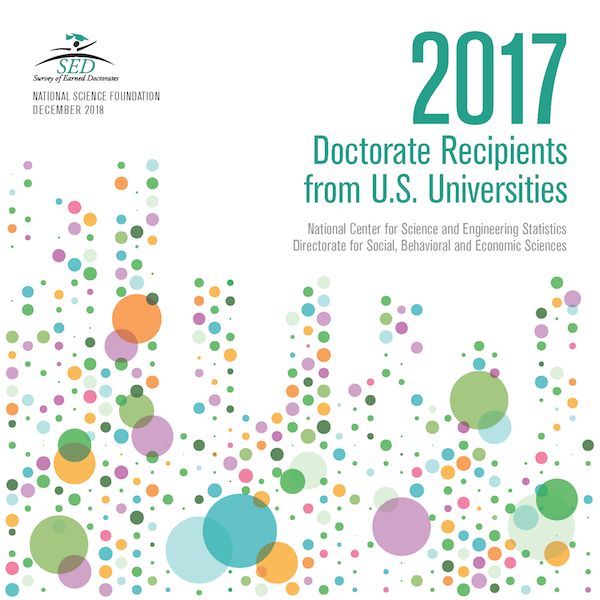Academic Disciplines With Huge Gender Gaps in Doctoral Degree Awards
Posted on Dec 26, 2018 | Comments 0
 As we reported last week in a WIAReport post, the National Science Foundation recently released its annual data on doctoral degree recipients in the United States. Data for the annual Survey of Earned Doctorates shows that universities in the United States conferred 54,641 doctorates in 2017. Of these, 25,495, or 46.7 percent, were earned by women.
As we reported last week in a WIAReport post, the National Science Foundation recently released its annual data on doctoral degree recipients in the United States. Data for the annual Survey of Earned Doctorates shows that universities in the United States conferred 54,641 doctorates in 2017. Of these, 25,495, or 46.7 percent, were earned by women.
While women have generally closed the gender gap in doctoral degree awards, there are a number of specific disciplines where women continue to lag men in earned doctorates by a substantial margin. Here are some of the academic fields in 2017 where women earned less than one third of all doctorates awarded:
- Plasma physics, 12.3%
- Robotics, 13.3%
- Computer engineering, 14.1%
- Number theory, 14.5%
- Elementary particle physics, 15.8
- Nuclear physics, 17.5%
- Electrical engineering, 18.8%
- Computer science, 19.1%
- Theoretical chemistry, 25.9%
- Philosophy, 27.2%
- Astrophysics, 27.5%
- Finance, 28.2%
- Mathematics and statistics, 28.5%
- Civil engineering, 29.6%
- Theology, 30.7%
- Medical physics, 31.5%
- Organic chemistry, 31.7%
In contrast, there are a number of academic fields where women earned at least three quarters of all doctoral degree awards in 2016. Some examples include:
- Literacy and reading education, 89.2%
- Developmental and child psychology, 83.1%
- Health, medical psychology, 82.3%
- Social work, 80.9%
- Speech/Language pathology, 78.9%
- School psychology, 78.5%
- Educational psychology, 78.4%
- Health education, 76.9%
- Art history, 76.9%
- Urban education and leadership, 76.2%
Filed Under: Degree Attainments • Research/Study








